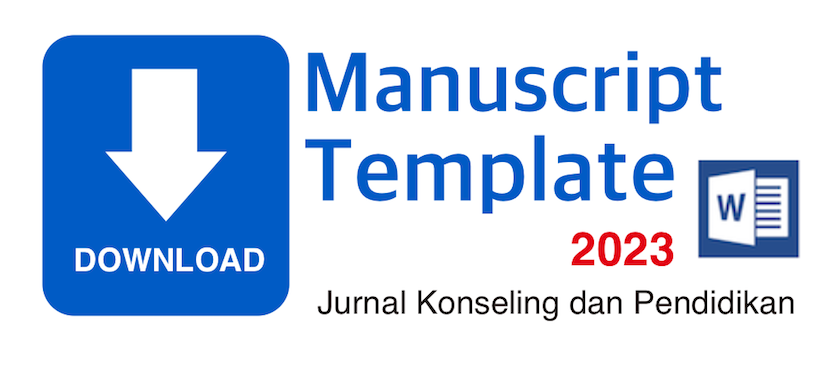Edupreneurship management in shaping the nation's character
 ), Akhmad Sobarna(2), Azhar Affandi(3), Heri Erlangga(4), Sarwani Sarwani(5),
), Akhmad Sobarna(2), Azhar Affandi(3), Heri Erlangga(4), Sarwani Sarwani(5), (1) Universitas Suryakancana
(2) STKIP Pasundan, Cimahi
(3) Universitas Pasundan
(4) Universitas Pasundan
(5) Universitas Pamulang
 Corresponding Author
Corresponding Author
DOI : https://doi.org/10.29210/151200
Full Text:
 Language : en
Language : en
Abstract
References
Ayus Ahmad Yusuf, A. H. (2016). Pengaruh Kepercayaan Diri Dan Semangat Kewirausahaan Terhadap Minat Menjadi Wirausaha. Al-Amwal, 8(2), 481–490.
B. Susilo, dan K. E. K. (2016). Baseline Research: Membangun Gerakan Desa Wirausaha. Yogyakarta: Yayasan Panabulu.
Bagautdinova, N. G., Goncharova, I. V., Shurkina, E. Y., Sarkin, A. V., Averyanov, B. A., & Svirina, A. A. (2013). Entrepreneurial Development in a Corrupted Environment. Procedia Economics and Finance, 5(903), 73–82. https://doi.org/10.1016/s2212-5671(13)00012-9
Chaturvedi, A. (2011). Communicative Approach to Soft & Hard Skills. India: Naraina College of Engineering & Technology. VSRD-IJBMR, 1(1), 1–6.
Edi Purwanta dan Hulfah. (2018). Application Of E-Marketing In Entrepreneurship Learning For Student With Intellectual Disability. Cakrawala Pendidikan, 37(3), 391–399.
Ismail, V. Y., Zain, E., & Zulihar. (2015). The Portrait of Entrepreneurial Competence on Student Entrepreneurs. Procedia - Social and Behavioral Sciences, 169(August 2014), 178–188. https://doi.org/10.1016/j.sbspro.2015.01.300
J.E. Austin, H. Stevenson, J. W. S. (2006). Social and Commercial Entrepreneurship: Same, Different, or Both? Entrepreneurship Theory and Practice.
Khoiri, A. (2016). Local Wisdom PAUD to Grow Student’s Soft Skills (Study Cash: Development RKH On Science Learning). Indonesian Journal of Early Childhood Education Studies, 5(1), 14–17. https://doi.org/10.15294/ijeces.v5i1.11271
Khoiri, A., & Haryanto, S. (2018). the 21St Century Science Skills Profile Based Local Wisdom Education (Tourist Attractions and Typical Foods in Regency of Wonosobo). Jurnal Penelitian Dan Pengabdian Kepada Masyarakat UNSIQ, 5(3), 361–371. https://doi.org/10.32699/ppkm.v5i3.485
Khoiri, A., Syifa, A., & Mubin, N. (2018). Potential Local Physics Based Learning of Jepara District To Improve Science Process Skills and Students Entrepreneurship. Formatif: Jurnal Ilmiah Pendidikan MIPA, 8(1), 57–68. https://doi.org/10.30998/formatif.v8i1.2365
Kolvereid, L., & Åmo, B. W. (2019). Incorporated entrepreneurship in Norway: Propensity and endurance. Journal of Business Venturing Insights, 11(December 2018). https://doi.org/10.1016/j.jbvi.2019.e00120
Lambrechts, W., Gelderman, C. J., Semeijn, J., & Verhoeven, E. (2019). The role of individual sustainability competences in eco-design building projects. Journal of Cleaner Production, 208, 1631–1641. https://doi.org/10.1016/j.jclepro.2018.10.084
Lent, R. W., & Brown, S. D. (2019). Social cognitive career theory at 25: Empirical status of the interest, choice, and performance models. Journal of Vocational Behavior, 115(June), 103316. https://doi.org/10.1016/j.jvb.2019.06.004
Maulida, A. N., Kusumah, I. H., & Permana, T. (2016). Karakteristik Sikap Mental Wirausaha Mahasiswa Dalam Bidang Otomotif. Journal of Mechanical Engineering Education, 3(1), 9. https://doi.org/10.17509/jmee.v3i1.3187
Mayer-Haug, K., Read, S., Brinckmann, J., Dew, N., & Grichnik, D. (2013). Entrepreneurial talent and venture performance: A meta-analytic investigation of SMEs. Research Policy, 42(6–7), 1251–1273. https://doi.org/10.1016/j.respol.2013.03.001
Miterianifa, Trisnayanti, Y., Khoiri, A., & Ayu, H. D. (2019). Meta-analysis: The effect of problem-based learning on students’ critical thinking skills. AIP Conference Proceedings, 2194(December). https://doi.org/10.1063/1.5139796
Mulyani, E. (2014). Developing an Enterpreneurship Education Project-Based. Cakrawala Pendidikan, XXXIII/no., 50–61.
Oviedo-Trespalacios, O., Angarita, L. P., Maestre-Meyer, M., & Correa, C. B. (2015). Building the Life-long Learning Competence in Undergraduate Engineering Students with a Laboratory Practice in Learning Curve. Procedia - Social and Behavioral Sciences, 174, 2021–2026. https://doi.org/10.1016/j.sbspro.2015.01.870
Portillo Navarro, M. J., & Millán Jiménez, A. (2016). Moderators elements of entrepreneurship. Gender differences. Suma de Negocios, 7(15), 47–53. https://doi.org/10.1016/j.sumneg.2016.02.002
Reis, T. (1999). Unleashing The New Resources and Entrepreneurship for The Common Good: A Scan, Synthesis And Scenario For Action. Battle Creek, MI: W.K. Kellogg Foundation.
Roman, I. (2015). Development of Agronomic Education by Student-centred Learning. Procedia - Social and Behavioral Sciences, 180(November 2014), 441–447. https://doi.org/10.1016/j.sbspro.2015.02.142
Rosana, D., . S., & A. Tiarani, V. (2012). Five Strategies of Entrepreuneurship Learning Untuk Menghasilkan Real Entrepeuneur (Model Pendidikan Entrepreuneurship Di Perguruan Tinggi). Jurnal Cakrawala Pendidikan, (1), 82–96. https://doi.org/10.21831/cp.v0i1.1468
Sukardi. (2001). DESAIN Model Prakarya dan Kewirausahaan Berbasis Ekonomi Kreatif Berdimensi Industri Keunggulan Lokal Sukardi MODEl Design OF Prakarya and entrepreneurship With creative economy based and local QUality of Industry dimension. Cakrawala Pendidikan, XXXVI(2001), 114–124.
Sunarsi, D. (2016). Pengaruh Minat, Motivasi Dan Kecerdasan Kognitif Terhadap Prestasi Belajar (Studi Kasus Pada Mahasiswa Program Studi S-1 Manajemen. Fakultas Ekonomi. Universitas Pamulang. Thn. Akademik 2015-2016). Proceedings (Vol. 1, No. 1).
Sunarsi, D. (2019). The Analysis of The Work Environmental and Organizational Cultural Impact on The Performance and Implication of The Work Satisfaction. Scientific Journal of Public Administration, 9 (2), 113-122.
Thelken, H. N., & de Jong, G. (2020). The impact of values and future orientation on intention formation within sustainable entrepreneurship. Journal of Cleaner Production, 266, 122052. https://doi.org/10.1016/j.jclepro.2020.122052
Victoria, D., & Elena, L. (2013). Moral and Ethical Conceptions of Entrepreneurs: Cross-cultural Aspects. Procedia - Social and Behavioral Sciences, 86, 318–322. https://doi.org/10.1016/j.sbspro.2013.08.571
Wiklund, J., Nikolaev, B., Shir, N., Foo, M. Der, & Bradley, S. (2019). Entrepreneurship and well-being: Past, present, and future. Journal of Business Venturing, 34(4), 579–588. https://doi.org/10.1016/j.jbusvent.2019.01.002
 Article Metrics
Article Metrics
 Abstract Views : 1071 times
Abstract Views : 1071 times
 PDF Downloaded : 336 times
PDF Downloaded : 336 times
Refbacks
- There are currently no refbacks.

This work is licensed under a Creative Commons Attribution 4.0 International License.




